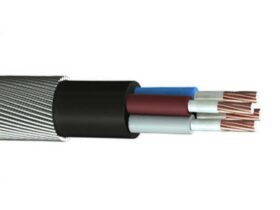EV charging power cables are an essential component in the charging process of electric vehicles (EVs). These cables are designed to transfer electrical power from a charging station to the EV’s battery system, allowing the vehicle to recharge its battery.
EV charging power cables come in different lengths, sizes, and power ratings, depending on the type of charging station and the EV’s battery capacity. They are made of high-quality materials such as copper and aluminum, which offer excellent electrical conductivity, durability, and resistance to extreme temperatures and weather conditions.
One of the critical factors that make EV charging power cables different from traditional power cables is their safety features. Since EV charging involves high-voltage electricity, safety is a crucial aspect that cannot be compromised. Therefore, EV charging power cables are designed with advanced safety features such as insulation, grounding, and overcurrent protection, which reduce the risk of electrical shocks, short circuits, and fires.
Moreover, some EV charging power cables are equipped with smart technologies such as RFID, GPS, and Wi-Fi, which provide enhanced safety and convenience features. For instance, RFID technology enables secure access control to the charging station, preventing unauthorized use and theft. GPS technology helps EV owners locate nearby charging stations and plan their trips accordingly. Wi-Fi technology provides real-time monitoring of the charging process, enabling EV owners to check the charging status, battery level, and estimated time to complete the charging.
In conclusion, EV charging power cables play a critical role in the success of the EV market. With the increasing demand for EVs, the need for reliable, efficient, and safe charging infrastructure is essential. Therefore, investing in high-quality EV charging power cables is crucial to ensure a brighter and safer future for the EV industry.












Leave a Reply